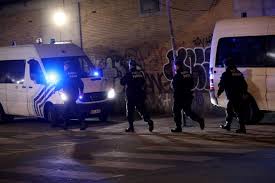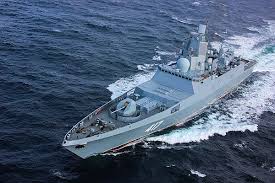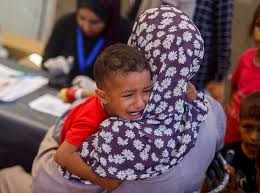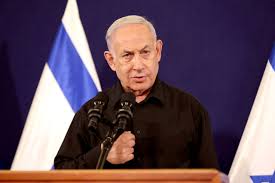DUBAI (AP): Energy officials from Qatar and Turkey, long-standing foes of the United Arab Emirates, descended on Dubai along with hundreds of other executives on Tuesday, flocking to the world’s largest gas expo and the industry’s first in-person conference since the pandemic began.
In a scene that would have been unthinkable just a year ago, the Emirati oil minister held forth from a crowded conference room beside the Qatari minister of state for energy, the first such visit since the UAE and three other Arab states imposed an embargo on Qatar in 2017.
Also present was the deputy energy minister from Turkey, similarly at odds with the UAE over the Turkish government’s support for Islamist groups in the Middle East.
But there was no mention of those long-simmering political differences at Tuesday’s event. Instead, the carpeted halls buzzed with cheery talk of the importance of natural gas in the world’s looming energy transition. The exhibition came as world leaders prepare for a crucial UN climate summit, in Glasgow in November.
“We think gas is definitely going to be part of the solution … I think we need to join hands to make sure that this mammoth task that we’re embarking on can be practically achieved,” declared Saad al-Kaabi, minister of state for energy affairs in Qatar, home to some of the world’s largest gas reserves.
When asked by a crush of reporters about the economic yield of improved relations with the UAE, al-Kaabi kept it brief.
“Our relationship is good with the UAE and any business dealings we’re doing… will not be discussed,” he said.
The officials refrained from shaking hands or bumping elbows but the group photo alone revealed a foreign policy shift, as the UAE seeks to bury the hatchet with its regional rivals. Last month, the influential Emirati national security advisor Sheikh Tahnoun bin Zayed Al Nahyan met Turkish President Tayyip Erdogan in Ankara, before flying to Qatar for talks with its ruling emir.
The flurry of diplomacy aims to mend ties that frayed over Turkey and Qatar’s support for the 2011 Arab Spring uprisings that empowered Islamists across the region. The rift between Turkey and Qatar on one side and Gulf Arab powerhouses on the other has fueled wars from Libya to Syria as well as the ultimately unsuccessful boycott of Qatar, which ended earlier this year.
The backdrop for the detente was fitting, with each energy-dependent country increasingly preoccupied with how to fuel a post-pandemic economic recovery. The officials discussed a crunch in natural gas supply that has led prices to surge and scores of tankers to line up off Qatar’s coast. They expressed skepticism about the frenzied push to eliminate carbon emissions when fossil fuels remain key to supplying the world’s electricity.
“I think we have to be realistic, but unfortunately there is a drive now for being emotional about net zero and its pace,” said Emirati Energy Minister Suhail al-Mazrouei.
Turkey, which has sparred with neighbors over drilling rights in the eastern Mediterranean in its push to become an energy hub, has similarly sought to cool tensions with longtime rivals like Egypt.
Alparslan Bayraktar, Turkey’s deputy energy minister, told reporters he hoped the country’s gas discoveries and projects would “help us to solve some of the regional conflicts, our conflicts between neighbors.”
The modest optimism even extended to the prospect of more Iranian oil coming on the market in the future after years of US sanctions throttling Iranian oil sales.
Iran “looks forward to coming back to the market to play their constructive role,” said OPEC Secretary-General Mohammad Sanusi Barkindo.
But negotiations between Iran and world powers on reviving their nuclear deal have stalled for months, and Barkindo admitted he could offer no timeline for Iran’s return.
“We have to take everything step by step,” he said.






